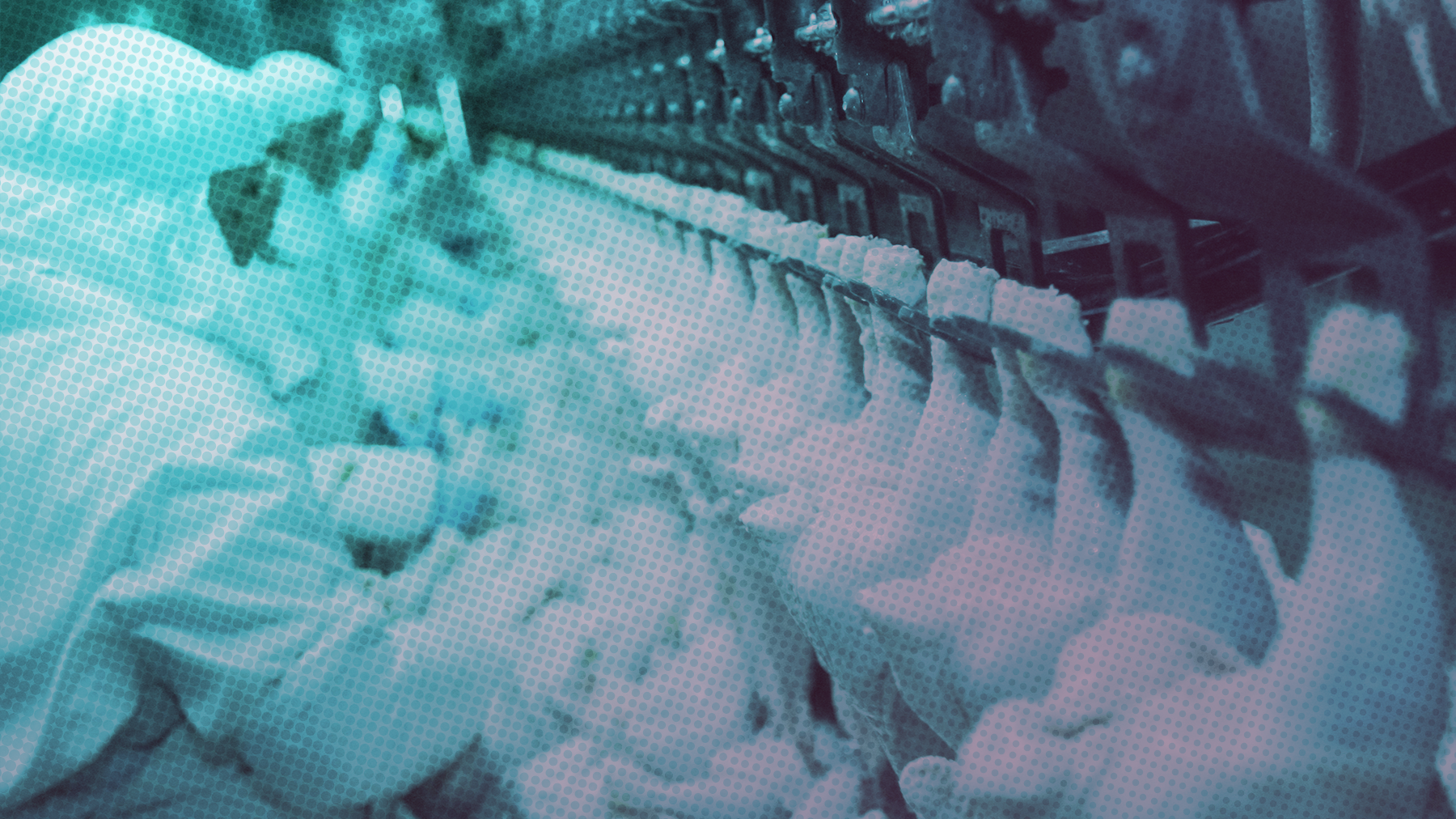Recently, there has been an outpouring of praise for essential workers on the front line of the COVID-19 pandemic.
I, like many others, have watched communities come together to applaud medical staff leaving a shift at hospitals. Similarly, labor and immigrant rights organizations have praised the workers keeping grocery store shelves stocked for a nation where residents have been locked away in their homes.
One group of people on the front line who have not received such attention for their important work is poultry plant workers. The spotlight is only on them now due to President Trump signing an executive order to keep meat processing plants operating during the pandemic.
While safety guidelines for people working in the industry during the pandemic have been issued by the Occupational Safety and Health Administration and the Centers for Disease Control and Prevention, they are not binding, and the guidance itself is inadequate. If we are going to force workers into the processing plants, the best way we can show our appreciation to them is by ensuring that they are able to safely do their jobs – or take a break if they get sick. Last week, a CDC report noted that 20 meatpacking workers have died from the virus and almost 5,000 have been infected with the coronavirus.
As an outreach paralegal for the Southern Poverty Law Center, I have spoken to hundreds of people working in poultry plants in the Deep South. Long before COVID-19 became a safety issue, poultry workers frequently spent their workday in processing plants where hazardous conditions – and a lack of safety precautions – are frequently the norm.
COVID-19 has only made things worse.
Poultry workers have spoken out about the inadequate coronavirus safety measures. At the SPLC, we have heard reports of supervisors being provided personal protective equipment while processing line workers have had to go without. Also, employers have failed to put social distancing measures in place; people still work the processing line shoulder to shoulder with their coworkers.
For plants that have confirmed cases among their workforce, poultry workers are demanding that the plants be sanitized before they return to work. Other poultry workers are asking for paid leave, so that they may take time to care for themselves or their loved ones if they become ill – something they traditionally have not had in this industry.
In fact, we know that in the past some poultry plants have disciplined workers for taking a day for a routine medical appointment by placing a “point” on their attendance record, ultimately firing workers who accumulate a certain number of “points” under this harsh attendance system. Some poultry plants, rather than offer paid leave during the pandemic, have offered a modest bonus in exchange for working three months without missing a day.
In other words, instead of providing worktime flexibility and compensated time off, the processing plants are enacting policies that discourage taking time off and ultimately put workers and their families at risk.
To make matters worse, it was just last month that 15 poultry plants received waivers from the federal government to increase their processing line speed, putting output and profit over worker safety. The SPLC has long documented and reported on the injuries workers endure in poultry processing plants in the South, where line speeds can reach the maximum speed of 140 birds per minute. Since then, the poultry industry has lobbied the federal government for these waivers allowing them to increase line speeds up to 175 birds per minute.
Even without an employer turning up the line speeds or the threat of a pandemic, these workers have frequently endured a workplace where they face retaliation for taking leave for medical reasons; discrimination or harassment from management; and even a lack of bathroom breaks.
Overall, poultry work continues to be one of the most dangerous jobs available, which is why we’ve worked closely with the people who endure these conditions to reform this industry. And it’s one of the reasons why we’ve urged members of Congress to support workers with basic safety measures and time off if they become ill during this pandemic.
We must support poultry workers, not just because they help bring food to our tables, but because they are members of our communities who deserve to go home safely to their loved ones – even if there isn’t applause as they leave work.



